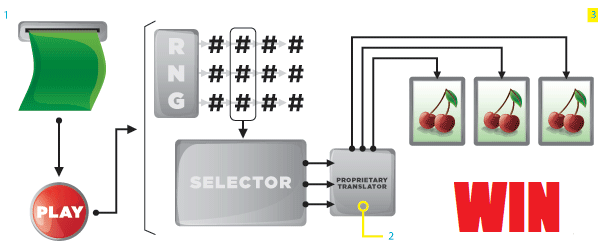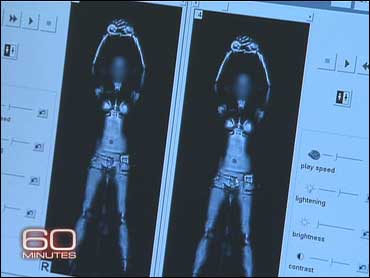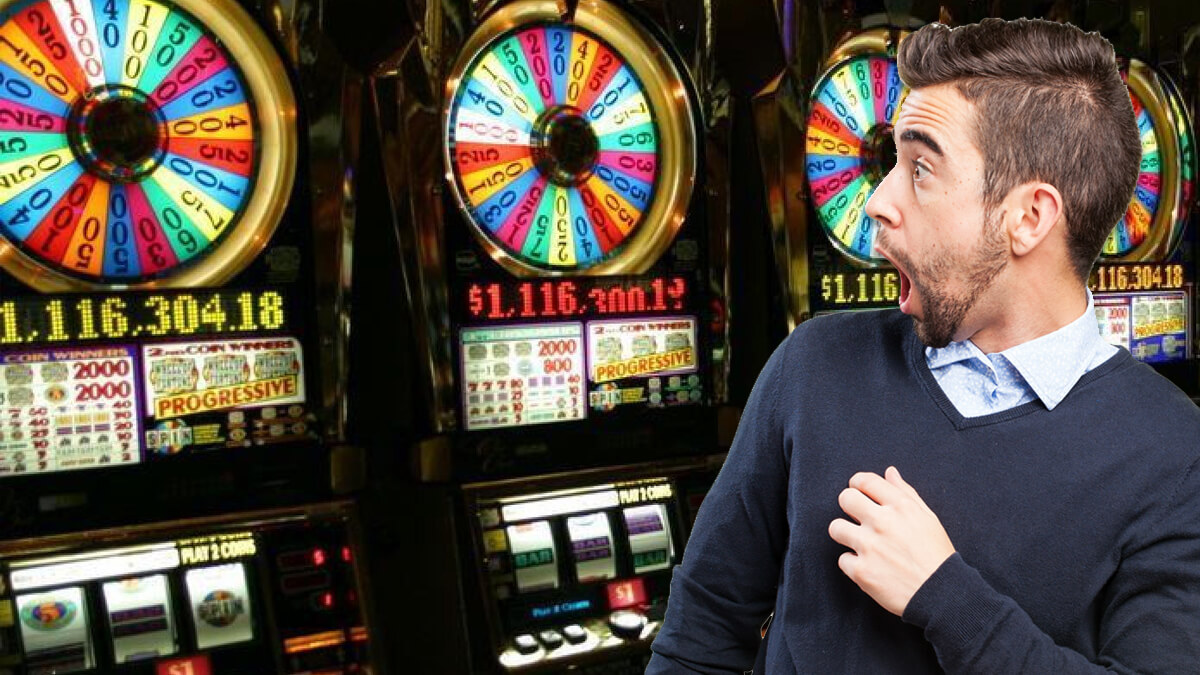How Do Online Slot Machines Work
Most amateur gamblers believe that if a slot machine hits the jackpot, then it immediately goes ‘cold’. They also believe the opposite is true; if a machine runs cold for hours, then it’s ‘due’ for a big payoff. But if you look inside modern slot machines, you learn the cold hard truth. Every single pull of the lever has equal odds of winning, and those odds are steep.
Since the earliest mechanical slot machines, gaming manufacturers have weighted the machines to tweak the odds. If you look closely at the reels of old machines, you’ll find many more blanks and low-scoring symbols than pots of gold, especially on the third or final reel. This creates the famous ‘near miss’ effect.
EVERY online slot game uses a random number generator computer which creates random sequences every millisecond to ensure that every slot is fair and not fixed. This random number system is built into all slots and all licensed casinos, ensuring a fair playing experience. The first in a series of videos explaining how slots, both online and land based, work. This video gives the basics of how slots work as well as dispelling a.
Modern slots have replaced the gears, cranks and stoppers with precision step motors and random number generators (RNG). When you pull the crank on a modern slot, a built-in RNG selects three numbers between one and 64. Each number corresponds to one of 22 spots on the three reels. The trick is that half of the numbers between one and 64 correspond to blank spots and only one random number matches the jackpot symbol. The odds of nailing the jackpot are 1/64 x 1/64 x 1/64 or one in 262,144.
The lever is just for show. Three internal step motors spin each reel and stop them precisely at the positions chosen by the RNG. Still feeling lucky?

How Do Online Slots Work? What you see on the screen, or to be more precise, on the reels, are just random number combinations. Whenever 3, 4 or 5 of them match depending on the game rules the player is granted a prize. Game designers have spiced things up by replacing these numbers with one of a kind symbols, usually following a particular theme. Slot machines have targeted payback percentages built into their programming, but results are random. Programmed percentages on the slots work in the same way as percentages on the tables – the odds of the game lead to expected returns. Random results are not the same as equal results. For all intentions and purposes, slot machines run purely on math. Or algorithms, to be precise. That goes for just about any online casino game, from roulettes to scratch cards. But then again, a slot machine has to be a game of chance.
Return vs payback
There is no such thing as a ‘loose’ or ‘tight’ slot machine. In modern casinos, slot machines are programmed to deliver a precise return percentage, somewhere around 95 per cent. That means 95 per cent of the money that goes into a slot machine is paid back out to the players and the casino keeps the rest.
But here’s where things get tricky. The return percentage is not the same as the payback, which is the actual amount of money you win or lose during each gambling session at a slot machine. If you sat down at a slot machine for eternity and pulled the lever an infinite amount of times, your payback percentage would be exactly 95 per cent. Likewise, in a casino full of gamblers, the collective machines will pay back roughly 95 per cent of the total money gambled during the course of a day.
Unfortunately, you are only one person and you don’t have infinite pulls. So your odds of winning are equally good or bad every pull. You could lose all day and that doesn’t mean the machine is rigged. And it doesn’t mean that the guy who wins the jackpot found the ‘loose’ machine. He just got very, very lucky.
Top 5 Facts: Gambling stats
1) Big jackpot, big odds
The odds of winning the jackpot on a ‘progressive’ slot machine like Megabucks is one in 50 million, although if you are that one you’re likely to become very rich.
2) ‘Easy’ money
68 per cent of people who gamble at Las Vegas play the slot machines most often. And there’s a large target market as nearly 90 per cent of visitors to Las Vegas gamble.
3) The house wins
In the United States, gaming was a $92 billion industry in 2007, double what it was a decade ago. And in the UK, there were 143 casinos as of 31 March 2009.
4) United States of Slots
Even though Nevada is widely considered the gambling state, there are 37 US states with some form of legalised electronic gaming device like slot machines or video poker.
5) Vegas’ most wanted
The Nevada Gaming Commission maintains a list of 35 people who are not allowed in any casino or gambling establishment. Only one of them is a woman.
Discover more amazing technology in the latest issue of How It Works. It’s available from all good retailers, or you can order it online from the ImagineShop. If you have a tablet or smartphone, you can also download the digital version onto your iOS or Android device. To make sure you never miss an issue of How It Works magazine, make sure you subscribe today!
Plus, make sure you also check out our digital-only specials, such as Explore Mars, A Guide To The Galaxy and Earthquakes, available to download onto your digital device now!
| Quick Navigation |
The first gambling sites appeared on the Internet in the mid-1990s. During this time the basic principles of the online casino were laid down, which are still valid by the present day. Operators use digital technology to determine random winning combinations, receive bets, payout winnings and conduct draws. But this approach requires a lot of effort, money, specially developed software, and various online solutions.
A Brief History of Online Gambling
- The early 90s – the first free slot machine emulators appear on the Internet;
- 1994 – Microgaming develops the first digital casino platform;
- The mid-90s – legislation is being formed, the first regulators appear;
- 1996 – Playtech launches the Europa Casino website;
- 2003 – at the initiative of Microgaming, the eCOGRA technical laboratory is created to test software and laid principles of Honest Game;
- 2011 – NetEnt presents the first video slots for mobile devices;
- 2014 – Microgaming releases the first mobile casino software;
- 2016 – Online casinos became available in VR;
- 2019 – Implementations of AR technologies started to appear in online casinos.
Random number generator

The best example of a classic casino meets only two conditions: the outcome is unpredictable, and victory depends on the player’s luck. Compliance with these principles in ground-based institutions is achieved through the use of certain objects and devices – a deck of playing cards, a roulette wheel, slot machines, etc. They guarantee a random outcome of the game.
However, conditions for gambling in casino online is based on randomly determining the outcome of a game without the use of special devices and human involvement. That is why RNG (the random number generator) was made. RNG – a program that is responsible for the prize combinations, regardless of the player’s actions. RNG guarantees the absence of any pattern in the sequence of issued outcomes. The work of modern video slots, roulette, video poker, etc. is based on this principle.
Payment Security in casino online

The possibility of payment on the Internet exists longer than online casinos work, but with their appearance, the principles of payments on the Internet have changed. All funds are stored on the client’s account, and payments are made in both directions: the player makes deposits, and the casino pays winnings.
The gaming account is similar to the online banking account, tied to a specific client and must be reliably protected. Data is stored on servers, access to which is open to a narrow group of specialists and is under the control of the security service. For convenience, players connect new payment systems, expanding the list of payment methods for deposits and withdrawal of winnings.
The requirements for operators regarding the protection of personal information are taken into account in a number of laws. For example, in 2018, a regulation of the European Union came into force, which regulates gambling business and all payments made in this niche.

Work control

The operation of the sites is governed by the laws of the country under whose jurisdiction the operator is registered. Most often, licenses are issued by the gaming commissions of Curacao, Malta, and Great Britain. These organizations monitor the implementation of laws by the company and protect the interests of players. Regulators strictly monitor how online casinos work, and in case of violations or complaints, they may issue a warning, fine or revoke a license.
Honest casinos operate strictly within the law and use only licensed software. Reliable providers issue licensed software with valid certificates.
All licensed software must undergo regular checks. The presence of a certificate is an important confirmation of the honesty and reliability of the casino operator. The most respected software auditors are eCOGRA and iTechLabs. Inspection information is usually found on the casino website and on the pages of technical laboratories.
How Do Online Slot Machines Works
Have any thoughts on this? Let us know down below in the comments or carry the discussion over to our Twitter or Facebook.